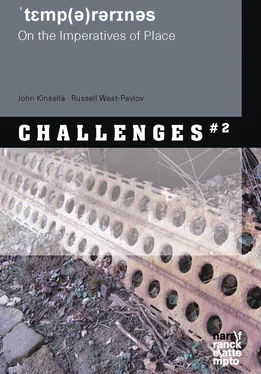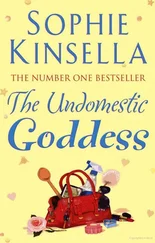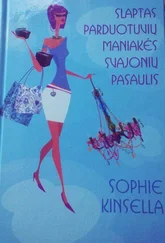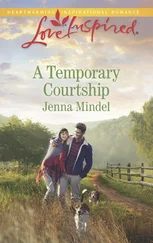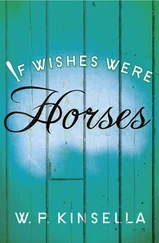JK
Where is here, where is there? Where is home, where is away? John has just written a poem about signing the petition against the accident-ridden French nuclear power plant at Fessenheim—just across the border, on the other side of the Rhine, only 100 km from here. Where is here, where is there, when the reactor flushes its contaminated cooling water back into the Rhine and its tributary the Neckar, and the winds can carry any particles that the plant may emit across the black forest to our adopted Swabian home further east? So much anxiety about belonging, about refugees, about keeping foreigners out—the basis of the shocking right-wing surge in the 2016 state elections—and so little anxiety about a more potent ‘foreign’ threat, one that comes from over the French border. It’s that threat that ought to be causing us a deeper anxiety. Although even that ‘foreign threat’ is no less dangerous, so Tracy tells me, than the domestic radioactive leaks from our ‘own’ Neckarwestheim and Neckarsulm plants further up our own oh-so-idyllic Neckar.
While we are on the subject of belonging and ‘here’: Neckarwestheim is twenty kilometres up the Neckar from Marbach-am-Neckar, where the German National Literary Archives are housed. The great treasures of German literature—manuscripts, letters, rare first editions, all the textual paraphernalia accrued since the elevation of Luther and Goethe and Schiller to icons of national tradition—are irrigated by the radioactive waste that threatens to put an end to all traditions, not merely those textual ones that are enshrined upon the Schillerhöhe looking over a bend in the Romantic Neckar. Fluid half-life against the river-like flow of a literary legacy (albeit one tarnished by the book-burnings), that I could experience live, tangibly, when I visited with Amadou from Dakar, to investigate Sebald’s scribblings from the Fens.
It’s time to recalibrate our notions of where we belong: perhaps, as Vivieros de Castro (2014) would have it, our home is a shared human continuum of humans and nonhumans, all experiencing themselves as intending persons, and thus as sites of intention and ethical action, but seeing various natural worlds around themselves. We and jaguars all have a taste for beer, but what we take for beer (IPA, Hefeweizen, or blood) is a matter of species-specific taste, a question of what is prey for each predator. Today, that common ‘humanity’ of human persons and non-human persons is underscored all the more so by a grotesque inversion. If we are predators one and all, beer-drinkers alike (in best German tradition), we are all, none the less, also ‘prey’: we are prey to that predator technology unleashed upon the world by human persons unaware of their place in a continuum of personhood and determined to dehumanize their own putatively singular humanity.
Here and there is neither here nor there—what counts, it would seem, is our common personhood across a spectrum of species and across a spectrum of places—whose differences, so important to childish nationalisms, are of no regard whatsoever to the monster radioactive ‘person’ preying upon us all.
RWP
Eco-futures Opening Speech
In all we do, whoever we are, wherever we consider ourselves as coming from, we should be aware of the impact we have as individuals, and collectively, on the natural environment. We should be critiquing our very presence. That is not to say that we shouldn’t ‘be’, not at all, but that we should be aware of being—its contingent privileges, and costs . And every word we use in discussing our presence should be scrutinised.
For example, the word ‘cost’ itself. What does it mean in this context? Are we reducing habitation and ecology to a system of profit and loss, of wealth accumulation? Obviously not, but we don’t have to be poets to know that words carry weight beyond our intentions. Yet as poets, we can always neologise—where a word is lacking, create one!
For me, when I talk of environment, I am usually talking of what most would call ‘the natural environment’. This might suggest an environment untrammelled by humans, or it might also mean an environment in which humans co-exist with other life-forms in a more ‘harmonious’ way. The problems of ‘harmonious’ aside—for ‘harmonious’ will only, in the end, ever refer to the human condition, not the non-human—I will say that I mean ‘natural’ and ‘human-made’, forms of environment, in the same way that ‘landscape’ is actually about human impact on the natural environment.
We also need to consider the ‘human-made’—the ‘built environment’—in all discussions of environment and ecology, because ecology is necessarily anthropomorphic, and should be critiqued and understood as such. From the garden through to the house, the village through to the city, from the park through to the forest, environmental language is built out of comparatives, slippages, gains and losses. Environment is also about immediacy, about the conditions under which the human—and, for me, as vegan and (an?) animal rights activist, the animal —subject is present. It’s a complex notion for what is often the simplest descriptive reference to nature and place.
So, as I will be talking about ‘environment’ and activism—which is an infinitely complex variable in itself—I do so with the understanding that its many meanings can easily shift in and out of focus as I move through this text, this speech. And given that we are dealing with ‘eco’ and ‘future’ in this festival, this discussion, we are confronted by a question of ecological environment specifically, and what is likely to remain the same (little) or change (a lot) as we go forward through the years.
We all know ‘oikos’ is house—in fact, a whole discourse has developed around that transition from the ancient Greek into the ecology of modernity. I’ve always found the word in its biological usage, the relationship of the organic to the inorganic physical world, a colonialist appropriation. The state of ‘our house’ or ‘the house’, depending on the grammatical article you select, is both an objective and subjective condition. We wish to keep our house well, we wish to keep the house well; we wish to wreck our house, we wish to wreck the house. There are choices of action and choices of possession in this. And dispossession .
Surely we need to ask whose house it actually is, and whether or not it has been ‘stolen’. Further, as we feed on technology, we should ask whose house is being robbed to give us our consumer comforts. Because you can be sure human houses are being robbed, as well as animal and plant houses. Consumerism is theft.
To my mind, many of us in Australia are calling it our house when it’s actually someone else’s house. We are on Aboriginal land. Fact. Now, don’t get me wrong, I believe we can all co-exist, and I am deeply committed to an open-door policy regarding immigration and refugees (in fact, Open Door is the name of the poetry book I am writing at the moment). But in the case of the exploitation of the house for wealth-accumulation, there has to be compensation, or better, the house shouldn’t be wrecked at all. Co-existence is possible and desirable, but it should come under conditions respectful to traditional owners and custodians. And I say this as one who doesn’t believe in ‘property’ or ‘private ownership’.
But what of the environments and their ‘houses’ that can and should exist outside the human? Well, there are many of these, and some actually exist inside the human! They are ecologies of bacteria and viruses that thrive in the human body, their environment, their house. Some of these bacteria we consider ‘good’ and allow to thrive in, say, our gut, but many are destructive to the human organism and we try to eliminate them. Survival. And there are some non-human living environments that experience human presence as that kind of contradiction: sometimes useful and necessary, most often not. Survival. The relationships are complex. Some talk of ‘balance’ in these things. Others talk about accumulated cultural knowledge as a means of pragmatic and generative co-existence. Language grows to accommodate.
Читать дальше
